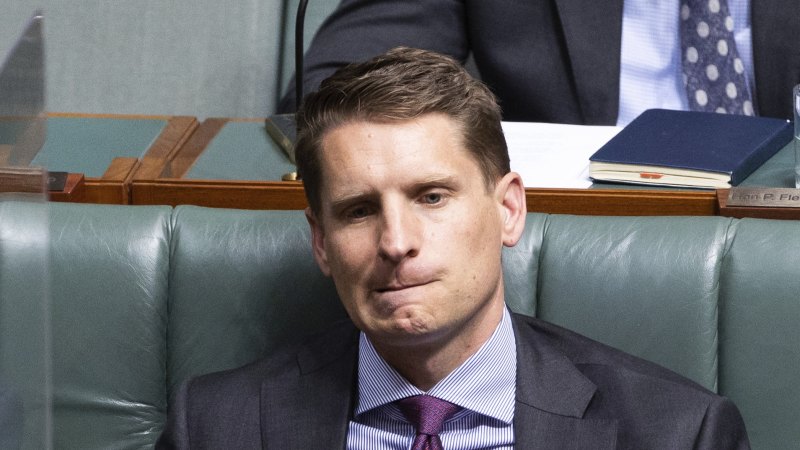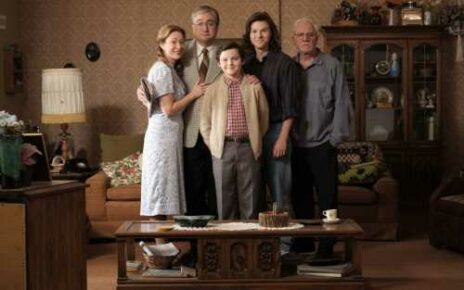Save articles for later
Add articles to your saved list and come back to them any time.
Opposition MPs are under fire for misquoting two former High Court judges on their position on the Indigenous Voice to parliament, sparking calls for an apology.
Former chief justice Robert French and former judge Kenneth Hayne – both prominent supporters of the Voice – gave evidence to a parliamentary inquiry batting away concerns about whether the new body would impede the functioning of government.
Former chief justice Kenneth Hayne.Credit: AFR
A dissenting report from that inquiry, on behalf of Liberal Party members, picked only portions of their answers to suggest they were concerned about the Voice. Those sections were then echoed in a series of speeches from opposition MPs to parliament during the lengthy debate on the Constitution Alteration (Aboriginal and Torres Strait Islander Voice) 2023 Bill.
French told the committee inquiry that the duty to consult would be constructed by parliament and if “for some reason or other, that became unworkable, the parliament could amend the law accordingly”.
He said: “Given the immense range of matters in which there might be an interaction between a proposed policy or practice and impacts on Indigenous people in one way or another, to imply a duty to consult across all of that range would really make government unworkable. I don’t think the High Court is in that business.”
The dissenting report said French’s evidence was that if a duty to consult the Voice was built into the proposed laws, that would “make government unworkable”.
In his evidence to the committee inquiry, Hayne said: “The very argument that requiring consultation, advanced notice and delay would disrupt the ordinary and efficient working of government, and the executive government in particular, demonstrates conclusively – and I use the word ‘conclusively’ deliberately – why you do not make the implication suggested. You do not make implications in a constitution that will bring government to a halt.”
He went on to say that because parliament would have the right to design the laws that underpinned the Voice, any argument that a duty to consult would stymie government was “untenable”.
The Liberal MPs’ dissenting report said Hayne had given “evidence that a duty to consult the Voice would ‘disrupt the ordinary and efficient working of government’ to such an extent that it would ‘bring government to a halt’.”
Opposition defence spokesman Andrew Hastie is one of the MPs who made a speech to parliament, based on the dissenting report assessment of Hayne’s remarks, to say the former judge had warned the Voice could lead to “gridlock”, before saying “don’t take my word for it” and quoting Hayne and French.
Senator Dorinda Cox wants the group to apologise.Credit: Alex Ellinghausen
Asked why he appeared to have mischaracterised Hayne’s remarks, Hastie said he stood by both the report and his speech.
“I assess risk by severity as well as likelihood,” Hastie said on Tuesday. “Mr Hayne’s evidence to the committee sought to downplay the likelihood of a duty to consult by claiming it could bring government to a halt. When it comes to assessing the severity of constitutional risk, we will take him at his word.”
Similar comments were attributed to Hayne and French in parliamentary speeches from five other Liberal MPs during the debate over the referendum legislation.
The other Liberal MPs that gave speeches including the dissenting report’s version of the comments include shadow treasurer Angus Taylor, Forrest MP Nola Marino, Moore MP Ian Goodenough, Bowman MP Henry Pike, and Flinders MP Zoe McKenzie. All the MPs referred to the report when asked why they had made the remarks.
Keith Wolahan, a co-author of the dissenting report and the deputy chair of the committee, pointed to a speech in which he claimed the former judges had conceded there was a risk to functional government but had “downplayed” that likelihood.
“They cannot be sure,” he said in the speech to parliament.
Attorney-General Mark Dreyfus said the “flagrant” misrepresentation was “deeply disappointing”.
“Mr Hastie should immediately apologise to both these distinguished former High Court justices and, as soon as Parliament returns, stand up, apologise to the House and correct the record,” he said.
Opposition defence spokesman Andrew Hastie and shadow treasurer Angus Taylor.Credit: Alex Ellinghausen
“Mr Hayne and Mr French, along with so many other constitutional experts, have made their views absolutely clear: the proposed amendment is constitutionally sound and would enhance our system of government.”
Greens First Nations spokesperson, and Yamatji Noongar woman, Dorinda Cox said the Liberal MPs were misusing the words of the former judges to mislead the public and parliament.
“This is just another example of the Liberals playing politics with the lives of First Nations people,” she said.
“The fact that multiple Liberal MPs have relied on the same misinformation suggests that they’re either careless with their comments or simply told what to say. They owe the House and voters an apology; their statements must be corrected.”
Constitutional lawyer Anne Twomey, who also provided evidence to the committee inquiry, said neither former judge had said the establishment of the Voice and a duty to consult would lead to government dysfunction.
“Hayne simply speculated that for those who are concerned about that issue, it’s actually a reason why the High Court would not take that approach,” she said.
Hayne declined to comment publicly on the matter when contacted by this masthead on Tuesday.
The Morning Edition newsletter is our guide to the day’s most important and interesting stories, analysis and insights. Sign up here.
Most Viewed in Politics
From our partners
Source: Read Full Article




